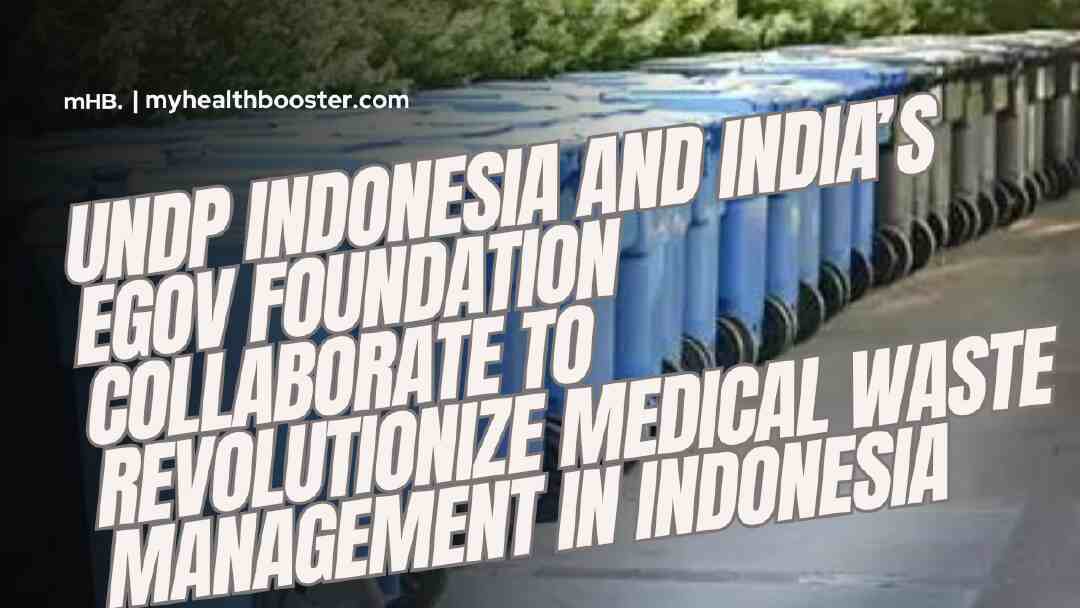In a significant move, UNDP Indonesia and India’s eGov Foundation have formalized their commitment to address the critical issue of infectious medical waste management in Indonesia by signing a Memorandum of Understanding (MoU). The partnership is geared towards harnessing the power of eGov Foundation’s Digital Public Infrastructure (DPI) called DIGIT, with the aim of introducing a comprehensive solution rapidly and on a large scale.
This groundbreaking collaboration between UNDP Indonesia and eGov Foundation has its roots in extensive discussions and engagement with a variety of stakeholders who share a common goal of promoting sustainable and efficient waste management practices in Indonesia. The primary objective of this joint effort is to introduce transparency and accountability into the entire lifecycle of infectious medical waste management across nearly 13,000 healthcare facilities throughout Indonesia.
As part of this partnership, Indonesia is set to embrace eGov Foundation’s open-source foundational system, the DIGIT Sanitation platform. This platform is uniquely designed to facilitate customization and the reuse of components across different waste categories and geographic locations. The versatile nature of this platform empowers Indonesia to expand its digitalization initiatives beyond the realm of infectious medical waste, extending its coverage to other waste streams such as faecal sludge, solid waste, and chemical waste. By capitalizing on the existing digital infrastructure of this technology stack, the partnership aims to expedite the development of efficient and cost-effective applications.
Viraj Tyagi, CEO of eGov Foundation, expressed enthusiasm about this collaboration, stating, “We are delighted to partner with UNDP Indonesia in addressing the urgent issue of infectious medical waste management. The sanitation sector necessitates nationwide coordination while accommodating regional variations in service delivery. Given the magnitude of this problem, Digital Public Infrastructure (DPIs) like DIGIT are ideally suited to meet the requirements of diverse stakeholders and drive substantial improvements in outcomes.”
Siprianus Bate Soro, Head of the Democratic Governance and Poverty Reduction Unit (DGPRU) at UNDP Indonesia, highlighted the collaborative spirit of South-South Cooperation in this endeavor, aiming to swiftly implement context-driven digital solutions in healthcare waste management. ME-SMILE, a healthcare waste management application that has already been deployed in 32 hospitals and one health center in Indonesia, plays a key role in this project. He expressed optimism about partnering with eGov’s DIGIT sanitation platform, envisioning the interoperability of the ME-SMILE system and the creation of an end-to-end traceability system encompassing all aspects of waste management, not just medical or clinical waste.
This partnership couldn’t come at a more critical time. Recent data from Indonesia’s Ministry of Environment and Forestry Affairs (MOEF) has shown a 30% increase in daily medical waste generation, surging to 382 tonnes after the pandemic, compared to pre-pandemic levels of approximately 293 tonnes. These alarming figures, collected from 2,820 hospitals and 9,884 health centers nationwide, underscore the immediate need for a comprehensive and nationwide approach to infectious medical waste management.
DIGIT is already being used by six countries, including 16 national and sub-national governments, across four domains. With over 100 partners continuously innovating on the platform, DIGIT is serving approximately 250 million people worldwide. The platform’s microservices-based architecture allows for flexible scalability and the potential for extensive deployments at a population-wide scale.
